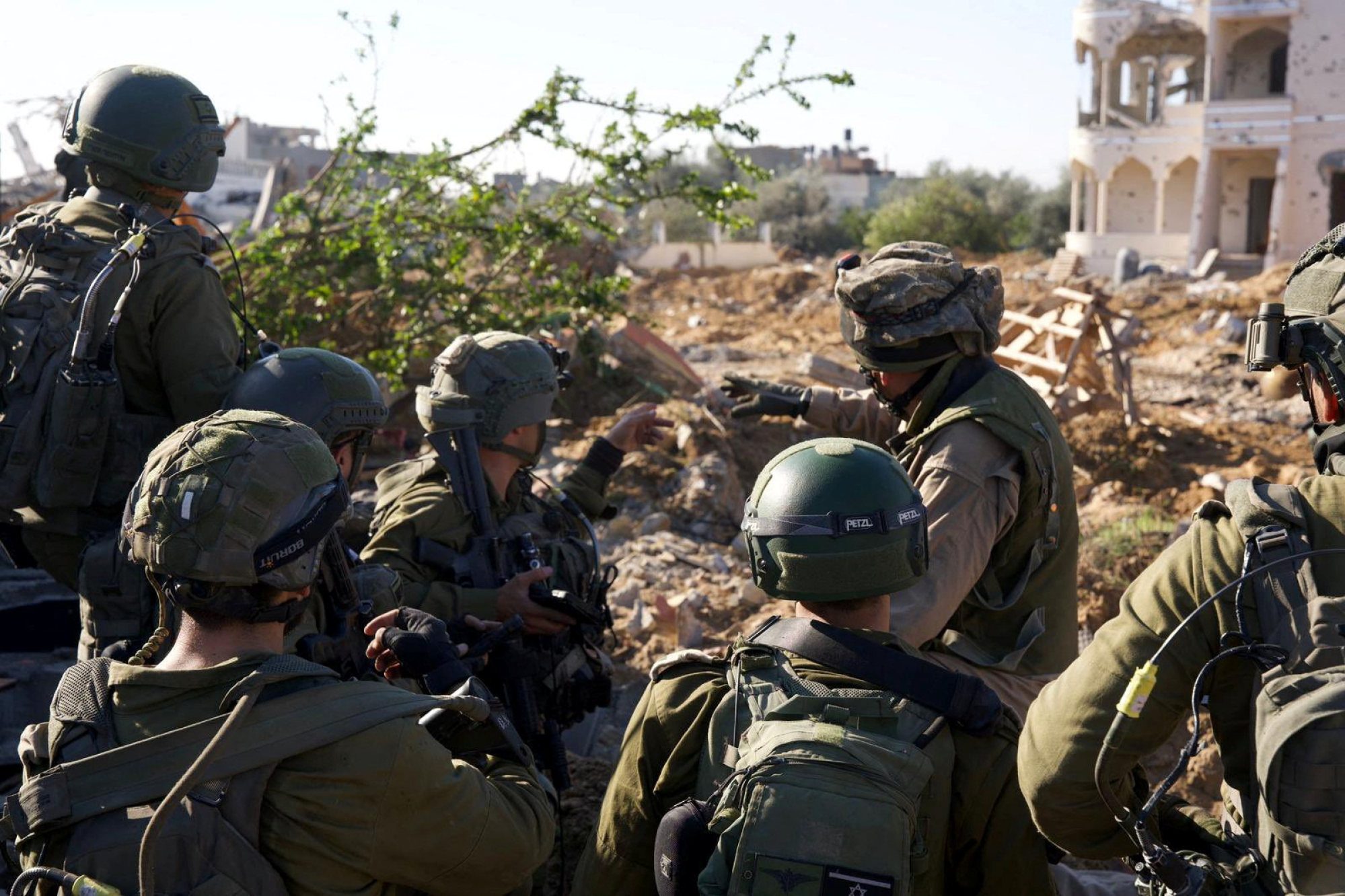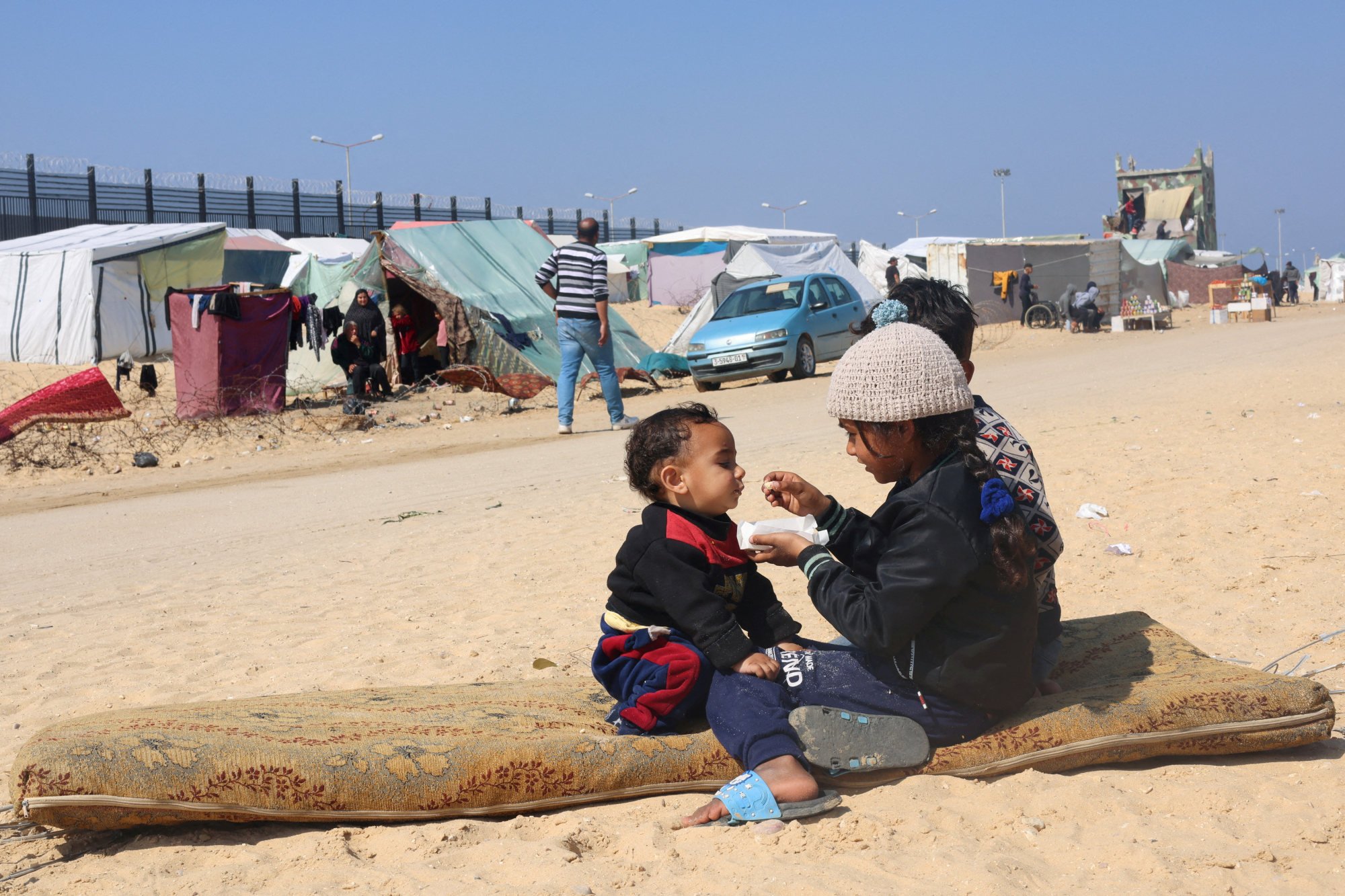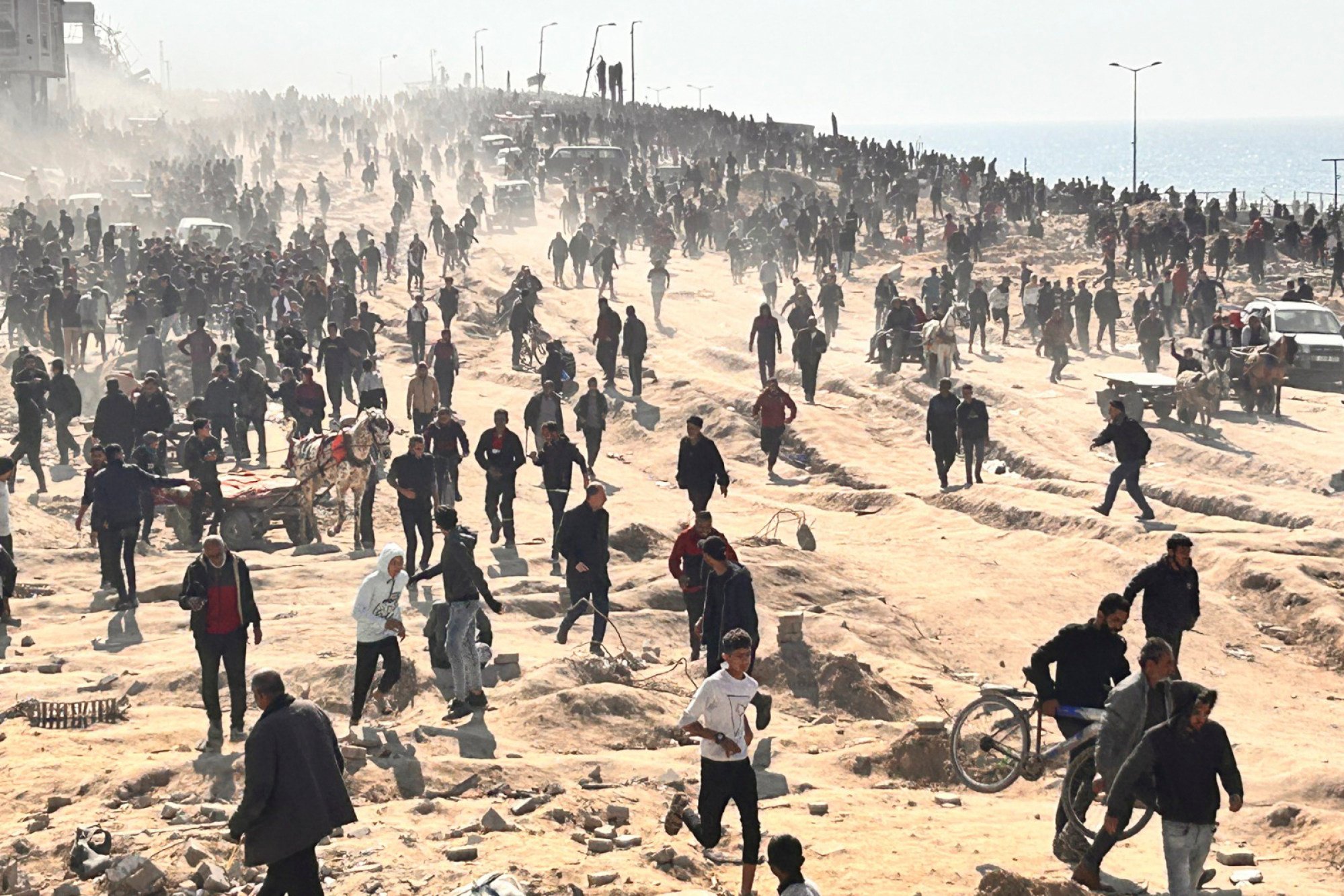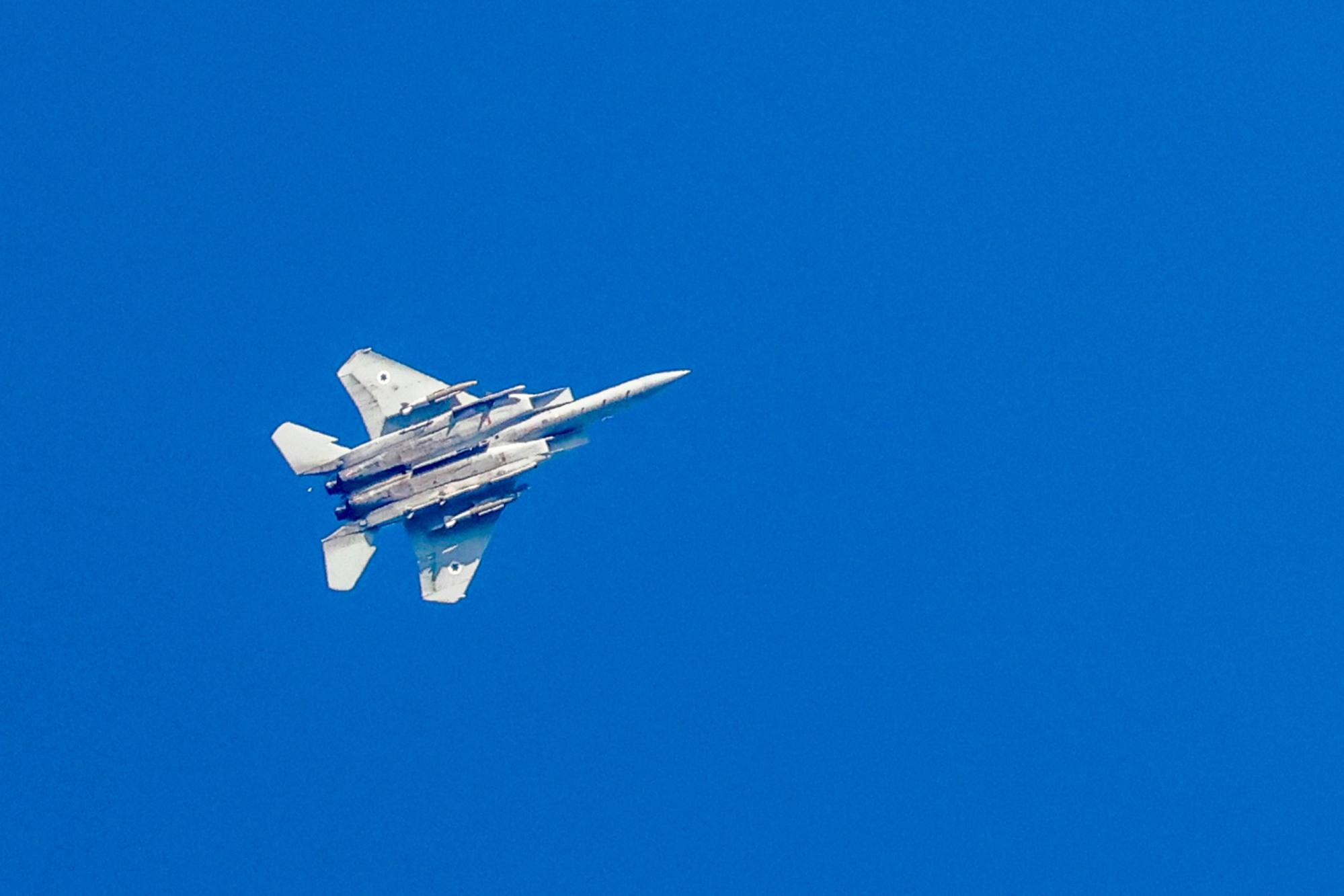Humanitarian groups warn of a catastrophe. Rafah is Gaza’s main entry point for aid. The US and other allies say Israel must avoid harming civilians.

Netanyahu has said he will convene the Cabinet this week to approve operational plans that include the evacuation of civilians to elsewhere in Gaza.
“Once we begin the Rafah operation, the intense phase of the fighting is weeks away from completion. Not months,” Netanyahu told CBS. “If we don’t have a deal, we’ll do it anyway.” He said four of the six remaining Hamas battalions are concentrated in Rafah.
US opposes Israel ‘reoccupation’ of Gaza, shrinking of Palestinian territory
US opposes Israel ‘reoccupation’ of Gaza, shrinking of Palestinian territory
US national security adviser Jake Sullivan told NBC that US President Joe Biden hadn’t been briefed on the Rafah plan. “We believe that this operation should not go forward until or unless we see (a plan to protect civilians),” Sullivan said.
Early Monday, Netanyahu’s office said the army had presented to the War Cabinet its “operational plan” for Rafah as well as plans to evacuate civilians from the battle zones. It gave no further details.
His office also said the War Cabinet had approved a plan to deliver humanitarian aid safely into Gaza.
United Nations agencies and aid groups say the hostilities, the Israeli military’s refusal to facilitate deliveries and the breakdown of order inside Gaza make it increasingly difficult to get vital aid to much of the coastal enclave.
In some chaotic scenes, crowds of desperate Palestinians have surrounded delivery trucks and stolen the supplies off them.
Heavy fighting continued in parts of northern Gaza, the first target of the offensive, where the destruction is staggering.

“We’re trapped, unable to move because of the heavy bombardment,” said Gaza City resident Ayman Abu Awad.
He said that starving residents have been forced to eat animal fodder and search for food in demolished buildings. In nearby Jabaliya, market vendor Um Ayad showed off a leafy weed that people pick from the harsh, dry soil and eat.
“We have to feed the children. They keep screaming they want food. We cannot find food. We don’t know what to do,” she said.
US blocks ceasefire call with third UN veto in Israel-Gaza war
US blocks ceasefire call with third UN veto in Israel-Gaza war
Philippe Lazzarini, commissioner general of the UN agency for Palestinians, said it has not been able to deliver food to northern Gaza since January 23, adding on X, formerly Twitter, that “our calls to send food aid have been denied”.
Israel said that 245 trucks of aid entered Gaza on Sunday – less than half the amount that entered daily before the war.
A senior official from Egypt, which along with Qatar is a mediator between Israel and Hamas, has said the draft ceasefire deal includes the release of up to 40 women and older hostages in return for up to 300 Palestinian prisoners, mostly women, minors and older people.

The official, speaking on condition of anonymity to discuss the negotiations, said the proposed six-week pause in fighting would include allowing hundreds of trucks to bring desperately needed aid into Gaza every day, including the north.
He said both sides agreed to continue negotiations during the pause for further releases and a permanent ceasefire.
Negotiators face an unofficial deadline of the start of the Muslim holy month of Ramadan around March 10, a period that often sees heightened Israeli-Palestinian tensions.
Israel weighs Eichmann-style public trials for October 7 attackers
Israel weighs Eichmann-style public trials for October 7 attackers
Hamas says it has not been involved in the latest proposal developed by the United States, Egypt and Qatar, but the reported outline largely matches its earlier proposal for the first phase of a truce.
Hamas has said it won’t release all of the remaining hostages until Israel ends its offensive and withdraws its forces from the territory, and is demanding the release of hundreds of Palestinian prisoners, including senior militants. Netanyahu has rejected those conditions.
Israeli Defence Minister Yoav Gallant on Sunday made clear that a ceasefire deal for Gaza wouldn’t affect the military’s daily low-level clashes with the Lebanese militant group Hezbollah, a Hamas ally.

“We will continue the fire, and we will do so independently from the south,” he said while visiting the Northern Command.
Israel declared war after the October 7 Hamas attack on southern Israel in which militants killed about 1,200 people, mostly civilians, and took around 250 hostages. More than 100 hostages were released in a ceasefire deal in November. More than 130 remain in captivity, a fourth of them believed to be dead.
Families have followed the negotiations with hope and anguish.
“It feels like Schindler’s list. Will he be on the list or not?” Shelly Shem Tov, the mother of Omer, 21, told Israeli Army Radio of his chances of being freed.
Brazil-Israel row escalates after Lula’s Holocaust remarks
Brazil-Israel row escalates after Lula’s Holocaust remarks
Israel’s air and ground offensive has driven around 80 per cent of Gaza’s population from their homes, putting hundreds of thousands at risk of starvation and the spread of disease. The Health Ministry in Hamas-ruled Gaza says 29,692 Palestinians have been killed in the war, two-thirds of them women and children.
The ministry’s death toll doesn’t distinguish between civilians and combatants. Israel says its troops have killed more than 10,000 militants, without providing evidence.
The war has devastated Gaza’s health sector. Less than half of hospitals even partially function.
At the Emirates Hospital in Rafah, three to four newborns are placed in each of its 20 incubators, which are designed for just one.
Dr Amal Ismail said two to three newborns die in a single shift, in part because many families live in tents in rainy, cold weather. Before the war, one or two newborns in incubators there died per month.
“No matter how much we work with them, it is all wasted,” she said. “Health conditions in tents are very bad.”

